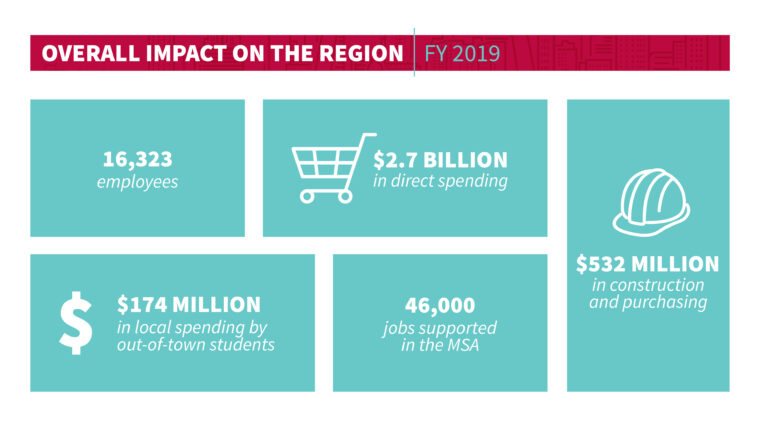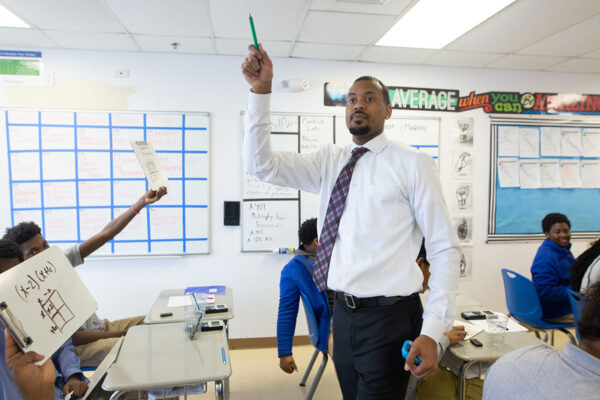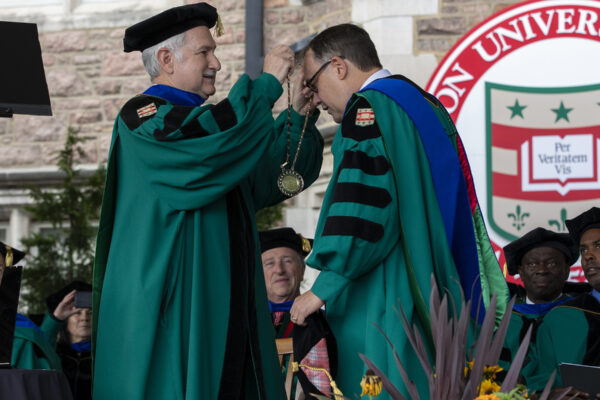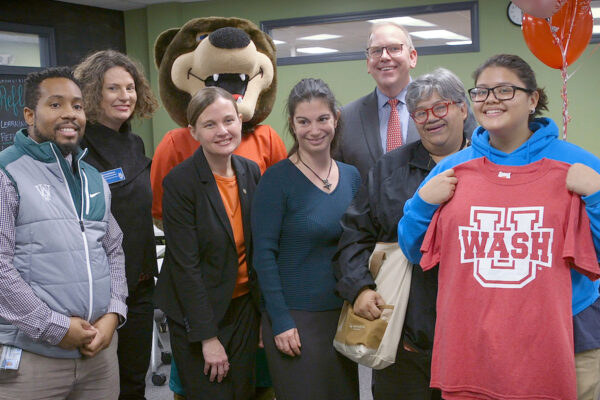Washington University made a big impact on the St. Louis economy in fiscal year 2019, spending $2.7 billion in the region. A new report shows the university spent $1.6 billion in salaries, $301 million in goods and services and $232 million in construction. The university also continued to draw top talent and research dollars to the region, provide exceptional patient care and support local schools and community organizations.
“At Washington University in St. Louis, we say we are in St. Louis, for St. Louis,” Chancellor Andrew D. Martin said. “That means we are ever mindful of how our work can improve the health and prosperity of our employees, our neighbors, our patients and the entire St. Louis region.”
The new 2019 Economic and Community Impact report from the Office of Government & Community Relations shows year-over-year spending in the local community continues to increase. The university paid an additional $200 million in salaries and $12 million in local purchases compared to fiscal year 2018. Washington University students spent $174 million locally in fiscal 2019 compared to $167 million the prior year.
Research dollars from the federal government and other sources also grew to $791 million in fiscal 2019 from $719 million the previous year. Five new university-related businesses were launched in St. Louis in 2019 and university staff filed 401 new patents. Washington University innovation and entrepreneurship created new jobs, generated tax revenue and strengthened an ecosystem that supports other local businesses.
Washington University School of Medicine continued to be a leader in patient care. School of Medicine physicians provided 1,356,925 outpatient visits and 655,751 inpatient visits in fiscal 2019 and delivered $144 million in uncompensated care.
Washington University also worked to boost college readiness through its innovative College Prep Program, which invites talented, under-resourced students to live and learn on campus, and Washington University College Advising Corps, which helps students — many of whom will be the first in their families to attend college — navigate the complicated application process.
Washington University also reaffirmed its commitment to surrounding neighborhoods through programs such as Live Near Your Work, which provides university support of up to $12,500 in forgivable home loans to move to neighborhoods near campus, along with infrastructure funding and direct support to neighborhood organizations.



